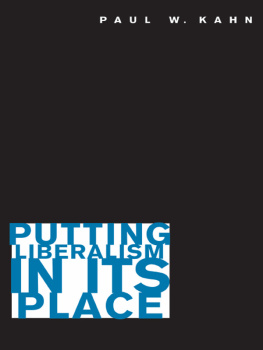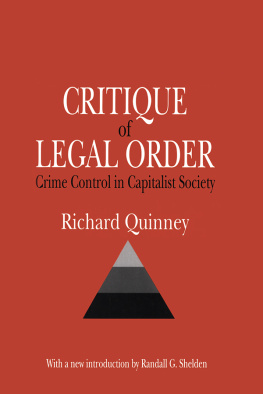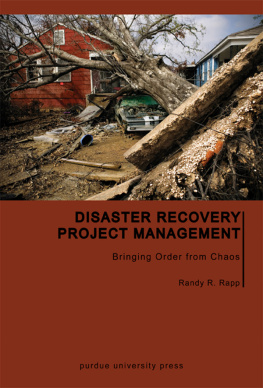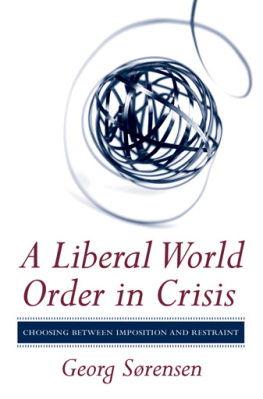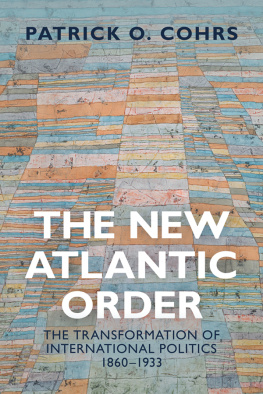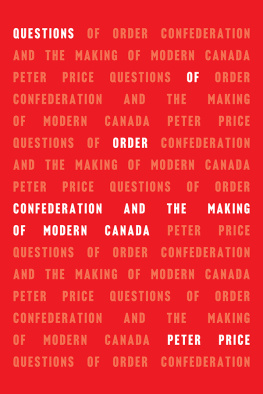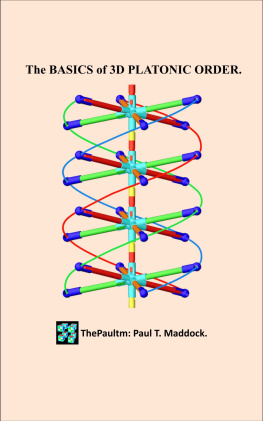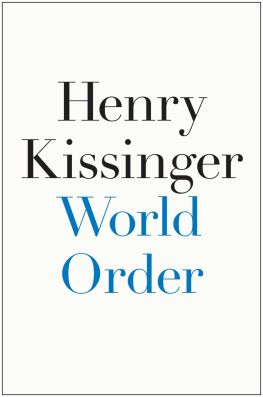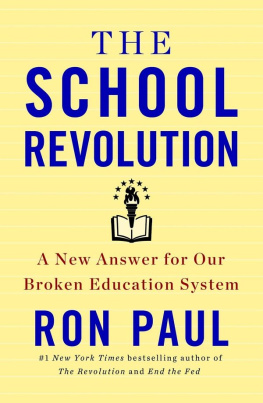YALE LAW LIBRARY SERIES IN LEGAL HISTORY AND REFERENCE
PAUL W. KAHN
Origins of Order
Project and System in the American Legal Imagination

Published with support from the Lillian Goldman Law Library, Yale Law School, and with assistance from the Mary Cady Tew Memorial Fund.
Copyright 2019 by Paul W. Kahn.
All rights reserved.
This book may not be reproduced, in whole or in part, including illustrations, in any form (beyond that copying permitted by Sections 107 and 108 of the U.S. Copyright Law and except by reviewers for the public press), without written permission from the publishers.
Yale University Press books may be purchased in quantity for educational, business, or promotional use. For information, please e-mail sales.press@yale.edu (U.S. office) or sales@yaleup.co.uk (U.K. office).
Set in Janson type by Westchester Publishing Services.
Printed in the United States of America.
Library of Congress Control Number: 2019935199
ISBN 978-0-300-24341-3 (hardcover : alk. paper)
A catalogue record for this book is available from the British Library.
This paper meets the requirements of ANSI/NISO Z39.48-1992 (Permanence of Paper).
10 9 8 7 6 5 4 3 2 1
For the sum of modern intellectual history constitutes the antagonism
between the mechanical and the organic, art and nature, the will to form
and the givenness of forms, between labor and rest.
Hans Blumenberg, Imitation of Nature:
Toward a Prehistory of the Idea of the Creative Being,
trans. Anna Wertz, 12 Qui Parle 17, 23 (2000)
CONTENTS
PREFACE: PROJECT, SYSTEM, AND THE LEGAL IMAGINATION
The term law has always had to do double duty. On the one hand, laws are made through a political process. On the other hand, laws are discovered as a system already operating in the world. The legislative output of Congress is the first sort of law; the laws of thermodynamics are the second. When we focus on the social, however, the line becomes blurred. The social order is the site of our legislative projects, yet the very point of social science is to discover systemic laws operating within the community independently of anyones project of law creation. My ambition in this book, in simplest terms, is to explore this ambiguity in law as it shows itself in American political and legal thought over the long nineteenth century, the period from the American founding to the Lochner Court of the early twentieth century. Over the course of that century, there is a general shift from thinking of lawparticularly constitutional lawas the product of a project to thinking of law as an immanent system.
I do not pursue a traditional history of constitutional law. My interest is rather to use the formations of law to explore the modern social imaginary. That there is a connection between modernity and a certain attitude toward law has long been evident in political theory and political practice. Modern political theory begins with the idea of a social contract: an idealized image of a constitution. Modern political practice begins from the idea that a state should have a constitution that both creates power and controls it for the sake of citizen rights. Both the theory and the practice of politics put law at the foundation of their enterprises. Of course, the actual relationship of law to political practice is complex and shifting. My inquiry is not into the history of that relationship itself, but rather into how it has been imagined. How we think about law tells us a great deal about what it means to be modern. Thinking about law has itself been the generative source of much of what we mean by modernity.
Modernity is not just a historical period, it is a way or ways of thinking about self and society. Modern thinking is characterized by an endless questioning of the self, both what it is and what it should be. Today, the question of what it should be becomes a question of how it came to be. Our paradigmatic forms of self-explanation are backward-looking; we have become writers of histories. Not just political history and biography, but histories of every discipline, of every art form, and of every social practice. This endless writing and rewriting of history is both an exercise in self-discovery and a continual reimagining of modernity as a break with the past. I follow that pattern of inquiry. I propose to investigate the shifts within the legal imaginary as it developed over the nineteenth century. I hope to use the legal inquiry as a metonym for exploring tensionsperhaps irresolvablewithin the larger social imagination of modernity.
To be modern is to be endlessly trying to answer this question of the origin of modernity. Origin, however, has at least two meanings: historical and conceptual. Investigations of the past can attempt to identify either the causes of or the reasons for the way we construct political narrativesincluding accounts of law. In this work, my primary concern is conceptual. I use history to identify conceptual possibilities. I argue that in imagining the legal order, we are, in Wittgensteins phrase, held captive by pictures. In the case of law, it is actually two pictures: project and system.
Modernitys concern with its own origin is part of a larger effort to take responsibility for self and community. There is a fear that without a proper understanding of history, we will be governed by accident and force. Self-creation is thought to be inseparable from self-knowledge. Accordingly, modernity is an attitude toward self-construction that looks to the past in order simultaneously to free and to realize the self. The modern self occupies its future by treating its past as a resource.
The modern self aspires, accordingly, to self-creation: each of us would make a project of our own life. Revolution in practice and
Law has a special regard for the past, but again that regard can be seen as either liberating or constraining. Courts purport to decide present cases on the basis of past acts of law creation and pronouncement. The very point of a constitution is to create a structure that endures. To endure is to be continually reapplied. Knowledge that the law will be applied is what makes the project of constitutional creation possible. The problem, however, has much deeper roots, for it puts into issue the relationship of revolutionthe free project of the peopleto constitutionthe system of law.
This problem takes different forms of expression at different times. Today, we worry about the countermajoritarian difficulty, while at the end of the nineteenth century scholars worried about the majoritarian difficulty: a fear of reckless action by popular majorities.free will? If Gods will is not bound by reasons laws, how can he be both wise and good? If he is bound, how is he free? Is Gods creation a project to be understood by reference to the particular intent of Gods will? Or is creation a system that realizes the order of reason itself? Are the laws of nature to be explained as Gods project or reasons system?
In this book, I examine this tension between project and system in nineteenth-century thought about legal order. One view of the relationship of knowledge to practice is expressed in the idea of a constitution as the product of a popular will informed by political science. Political projects call upon political theory as a normative inquiry into what politics should be. I will call this way of imagining law that of the project. A popular political project is a choice of the people to construct a legal order, informed by an idea or a theory. Opposed to the idea of law as a political project is an idea of law as a social system. To study the social is to inquire into an immanent order that arises spontaneously from within society. This immanent order lies behind the multitude of discrete acts and events that occupy our attention in daily life. Social science reveals an order of law that is the result of no ones intention. Modern social science will invent a new vocabulary to describe and a new method to discover that which the ordinary actor does not see or plan, yet which is immanent in the behavior of a population.
Next page

